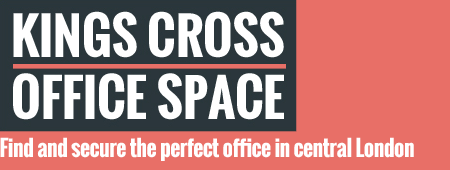For the past few years the area surrounding Old Street Roundabout has been commonly referred to as London’s ‘Tech City’; a birthplace of innovative start-ups and Britain’s answer to the Silicon Valley. From the late noughties onwards ambitious young tech businesses were lured to East London by the low rents on commercial space coupled with increased government investment in the tech sector, fast creating a community of likeminded entrepreneurs.
This community has thrived and expanded over the last five years; leading Europe in digital technology. Developments such as Google Campus and Here East have fuelled the fire of this growth and along with various flexible and co-working options have allowed companies to strive where they previously may have floundered.
Silicon Roundabout has nurtured the growth of tech businesses, from small start-ups into £1 billion companies such as TransferWise, and have truly revolutionised the way London looks not only at the tech sector, but at the conventional idea of ‘the office’.
However where there is a boom there is quiet often a bust. The peak in the popularity of Shoreditch naturally only lead to one thing – a rapid increase in commercial rent. With prices in Shoreditch doubling in the last two years, it is no surprise that tech clusters have begun appearing all across London. Today, East London is still the go to venue for tech start-ups but high rents are forcing companies to look elsewhere, and although still providing much of the infrastructure they require, we feel companies moving away from Silicon Roundabout can only be a good thing for tech progress in London.
The new Tech City?
And so, while landlords in Shoreditch sat counting their money, King’s Cross has become an outpost for those who could not (or would not) suffer their sky rocketing rents. Over the past few years the area has fast become a tech hub in its own right, with every potential to rival that of East London. Here are just some of the reasons we think King’s Cross has all the groundwork to challenge Silicon Roundabout for the title of London’s Tech Capital:
Funding and redevelopment
In essence, this is the most propelling factor behind King’s Cross’s potential. The redevelopment is well underway and signs of its progress are already clearly visible. The £550 million makeover has gone a long way in developing an industrial wasteland into a productive ecosystem capable of carrying London’s digital and tech economy.
Government investment in King’s Cross’s growing digital economy is present in the £10m project Connected Digital Catapult hub and when combined with projects such as Impact Hub King’s Cross, it’s clear to see King’s Cross has taken on a new persona.
European Transport links
As Europe’s tech leader, links with the continent have never been more important. Traditionally, King’s Cross has had excellent links across the country but in 2007, with the opening of the Eurostar terminal at St Pancras, King’s Cross became a European railway hub, connecting London to major European cities.
Having quick connections across the country and to Europe is something that East London cannot compete with.
Big names, big business
Guardian News & Media were one of the first to establish themselves a King’s Cross office in 2008 and have been followed by a growing list of big names in tech.
You may have heard about two big moves to King’s Cross over the last few years. Both Google and Facebook have plans to move to the area by 2017. Google plan to open their £1 billion European headquarters north of the station, consolidating their current offices at Victoria and St Giles High Street. Facebook, having outgrown its Covent Garden base, will be moving a short walk down Euston Road from Google’s new site.
King’s Cross now has perfect facilities to house tech start-ups. The movement of giants such as Facebook and Google is telling of the potential of King’s Cross. The collaboration of big companies with start-ups is a well-documented success story, and one that will soon be told in King’s Cross as well as Shoreditch.
Hipsters?
Love them or hate them, hipsters are synonymous with Shoreditch…so no tech capital would be complete without them right? Well in 2011 Central St Martins College moved into the Granary building in King’s Cross, bringing with it enough creativity and flair to rival the streets of East London. You only have to visit the fountains on Granary Square at lunch time to see how much King’s Cross has truly evolved.
Something King’s Cross will need to improve on however, is its lack of serviced offices and co-working spaces compared to Shoreditch. Flexible work space options are of vital importance for new start ups, and without a wide option available, growth on the scale needed would be difficult.
London: The future of the tech capital of Europe
In reality, it is most likely the case that the idea of a “tech capital” will eventually fade to a much wider network of tech zones. The way in which modern business is now conducted, and the influence that is placed on tech industries, will likely mean that tech hubs will progress until London as a whole is a larger tech body and individual zones blend into each other.
Croydon is one of the fastest growing of the new tech clusters that have emerged due to rising rent, and it’s hardly surprising given that it offers rents 40 per cent cheaper than East London and 80 percent cheaper than the West End. Excelling in gaming and enterprise services, Croydon has been tipped to become the Tech City of the South East. Through Camden, Kentish Town and Finsbury Park, tech clusters have flourished in London, and progress such as this just goes to show that tech as an industry is growing rapidly. And so whether or not King’s Cross overtakes Silicon Roundabout, the competition can only spell good news for the UK as a whole.

